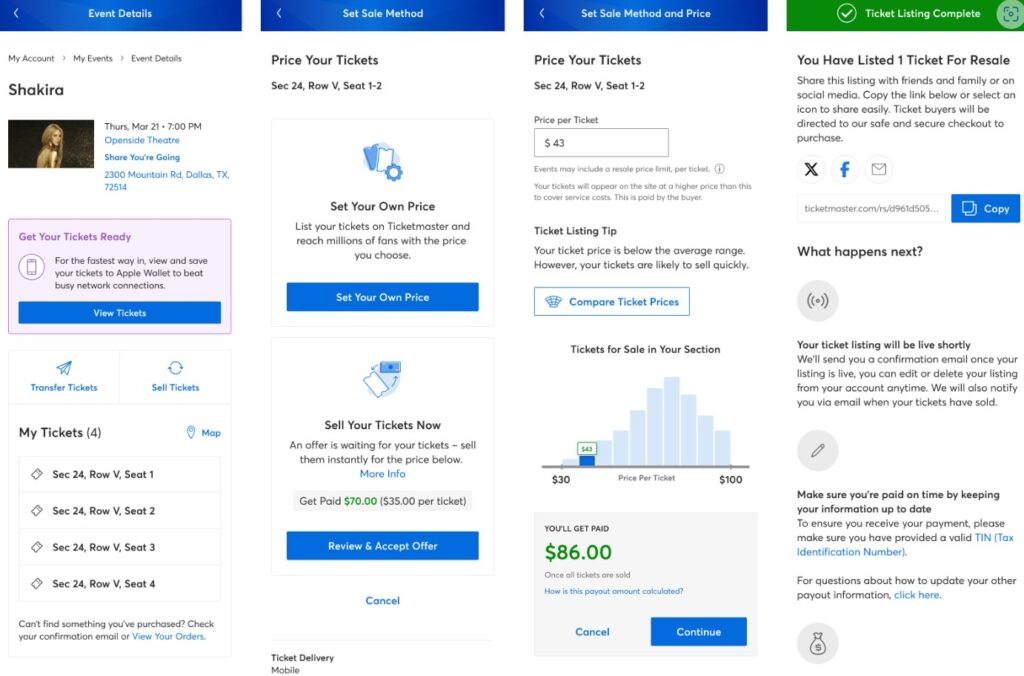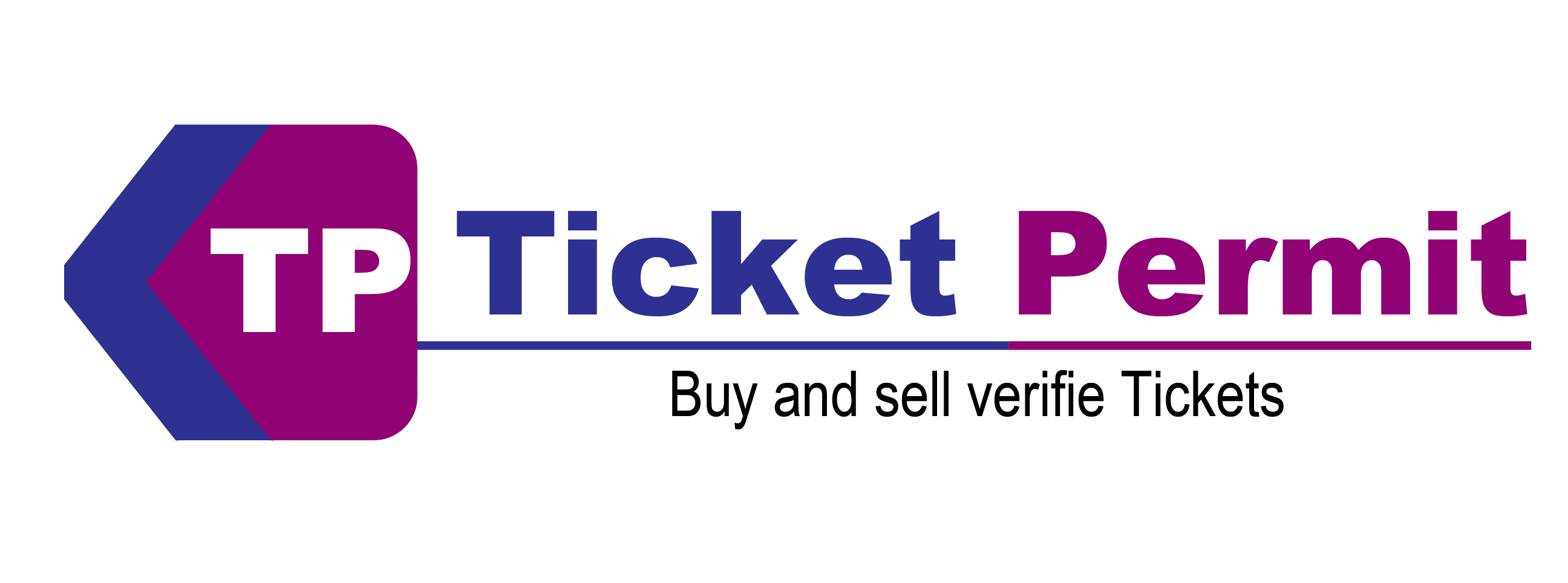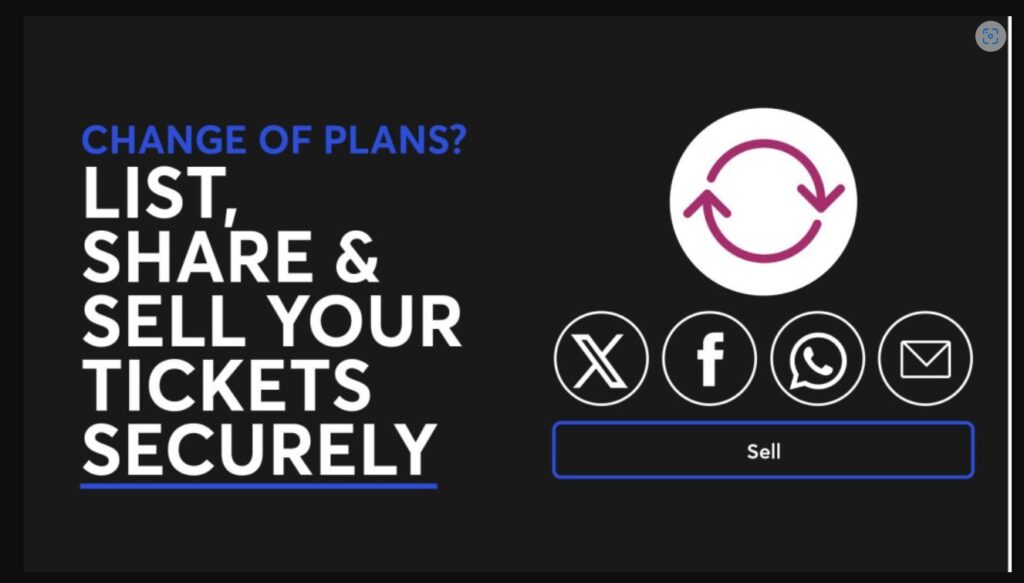Using social media networks to sell tickets is extremely helpful and fast when there is no other opportunity to sell a ticket in other ways. However, it is essential to understand the possible drawbacks of this type of selling – breach of privacy, scams, or interactions with untrustworthy or unreliable customers. If you are wondering how to safely sell your tickets on social media, this blog outlines a comprehensive guide covering the best practices and potential pitfalls to avoid.
Tips To Follow to Sell Tickets on Social Media
There are tips to follow to know how to safely sell your tickets on social media. They are:
-
Use Reputable Platforms or Groups
The first step in safely selling your tickets on the various media platforms is choosing the correct platform. Facebook, for example, has special markets or groups where people offer tickets for sale. These are usually controlled by administrators to minimize fraudulent activities and to make sure that the transactions are done effectively.
When choosing a platform, it’s essential to consider the level of oversight and security provided. Platforms like Facebook Marketplace or specific ticket resale groups on social media is more secure compared to selling on a personal timeline or through unmoderated forums. Look for platforms that have a history of positive feedback and are known for their trustworthiness.
-
Set Clear Terms
When listing your ticket, clearly state the price and any additional costs, such as service fees or shipping charges. Transparency in pricing helps build trust with potential buyers and reduces the chances of disputes.
When it comes to accepting payments, opt for secure methods that offer buyer and seller protection. PayPal’s Goods and Services option is a popular choice because it provides a layer of security for both parties involved. This method allows you to receive payments without sharing your financial information directly with the buyer, and in the event of a dispute, PayPal can mediate.
-
Avoid Sharing Too Much Information
When posting about your ticket sale, make sure to be cautious about the information you share. For example, avoid posting pictures of your ticket that show critical details like barcodes, QR codes, or serial numbers. These can easily be copied and used fraudulently, leading to potential financial loss and legal complications.
Instead, share basic details such as the event date, venue, and seat location, while keeping the sensitive information private. This reduces the risk of someone stealing and duplicating your ticket, which could render it invalid for the actual buyer.
-
Verify the Buyer
Before agreeing to sell your ticket to someone, take a moment to verify their social media profile. Look for signs that the profile is legitimate, such as a well-established history, regular posts, and interactions with other users. Be cautious if the profile seems newly created, has very few friends, or lacks any meaningful activity—these could be red flags indicating a potential scammer.
Selling to someone with whom you share mutual connections can add an extra layer of security. If you have friends or acquaintances in common, it’s easier to verify the buyer’s identity and trustworthiness. Don’t hesitate to reach out to mutual connections for a quick background check if you have any concerns.
-
Use a Trusted Third-Party Service
For high-value tickets or if meeting in person is not an option, consider using an escrow service. An escrow service acts as a neutral third party that holds the buyer’s payment until they receive and verify the tickets. Once both parties are satisfied, the funds are released to the seller. This method offers a high level of security, as it ensures that neither party can scam the other.
-
Beware of Scams
Be cautious of buyers who offer significantly more than your asking price. While it may seem like a great deal, overpaying is often a tactic used by scammers to lure unsuspecting sellers into a trap. Such offers typically come with strings attached, such as requests for unusual payment methods or shipping arrangements, which can leave you vulnerable to fraud.
Another common scam involves buyers sending links that claim to be payment confirmations or additional information. These links can be phishing attempts designed to steal your personal information or infect your device with malware. Never click on unfamiliar links, and if something seems suspicious, trust your instincts and disengage from the conversation.
-
Document Everything
To protect yourself in case of a dispute, keep a detailed record of the entire transaction process. Save all communications, including messages, emails, and screenshots of payment confirmations. This documentation can be invaluable if you need to file a complaint or provide evidence to resolve a dispute.
In addition to communication records, keep copies of any receipts, shipping information, and tracking numbers if you send the tickets by mail. Having a paper trail helps ensure that you have all the necessary information to back up your side of the story if things go wrong.
-
Use Ticket-Specific Platforms as a Backup
While selling tickets on social media can be convenient, it’s always a good idea to consider listing your tickets on verified resale platforms like TicketPermit, StubHub, SeatGeek, or Ticketmaster’s resale section. These platforms are specifically designed for ticket sales and offer a higher level of security for both buyers and sellers.
Though these platforms may take a fee, the peace of mind they offer often outweighs the cost. They handle all aspects of the transaction, including payment processing, fraud prevention, and customer service, making them a reliable backup option if you’re unable to sell your tickets on social media.

The Bottom Line
All in all, you can safely sell your tickets on social media to buyers, but it requires caution and careful planning to avoid potential risks. By using reputable platforms, setting clear terms, limiting the information you share, verifying buyers, and considering safe transaction methods, you can significantly reduce the chances of falling victim to fraud.




